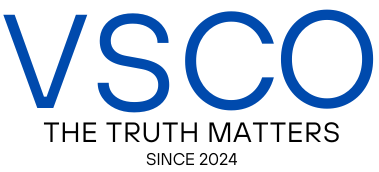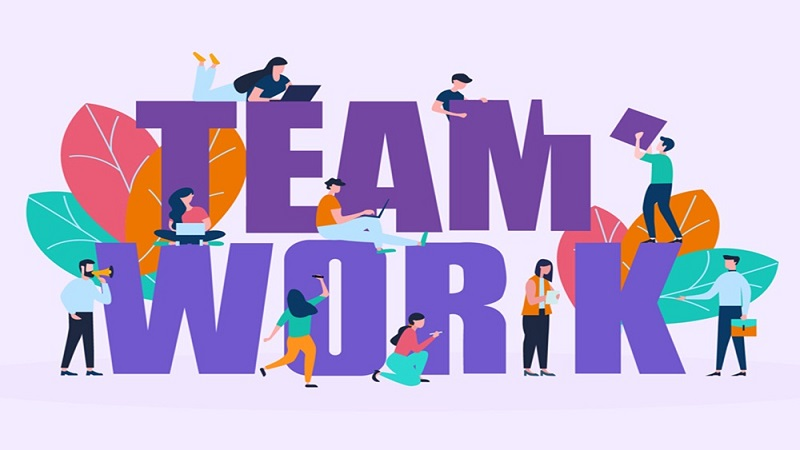Introduction
Cooperatives are work interdependence because the success of every organization or group activity greatly depends on teamwork. It indicates that, apart from improving problem-solving performance, collaboration improves social inclusion. There are powerful evidence that interpersonal skills enhance innovation, job performance and efficiency.
In any administration or gathering of people, there are specific attributes of every person that he/she possesses. It may also encourage novelty, which allows teams to solve problems better. It shows that sometimes the collective work of the team can be much more effective than the individual schock where everyone tries to attain a goal on own.
What is Teamwork?
Teamwork refers to a collaboration of individuals in order to come up with a collective objective. It involves collaboration, consultation and confidence. Organizations require the groups to work together for efficiency, effectiveness, at the workplace, in class, or on the playing fields.
The Benefits of Teamwork
That is why you will find many advantages of working in teams. Some of the most important benefits include:
- Increased productivity
- Improved decision-making
- Greater creativity
- Better problem-solving
- Increased job satisfaction
- Improved morale
- Stronger relationships
Ways of Developing a Proper Team
It is known that the construction of an effective team is not a simple process and certainly it responds to the work carried out. Here are some tips for building a successful team:
- When handling conflicts be sure to: Locally, those on the team should be able to understand and know what is expected of them.
- Encourage open communication. The participants of a team should not hesitate to express their thoughts and concerns or issues.
- Build trust. Employers should be able to rely on the other members of their team to deliver on their end.
- Celebrate successes. People that work in teams should not only be appreciated for the work they deliver but also for the work of their team members.
The Different Types of Teams
As has been mentioned above, there are many forms of teams. Some of the most common types of teams include:
- Work teams. Work groups are associations of individuals with overlapping responsibilities and goals who collectively get a job done.
- Project teams. Project teams are groups of individuals who are responsible for accomplishment of a certain project.
- Self-directed teams. Self-directed teams are work groups in which members are mainly accountable for their responsibilities.
- Virtual teams. Virtual teams are composed of individuals who have same objectives and goals, yet they do not physically report to the same workplace.
The Fundamentals of Teamwork
Coming together of two or more people with an aim of using their abilities in a common enterprise is referred to as teamwork. Having a clear conception of what it means and knowing the basic concepts is critical in group work.
Definition and Importance
Teamwork can be explained as a cooperative model of operation where people come together to effectively cause or bring about a defined goal in an organization. It fosters shared interaction and teamwork, and will also promote support among them.
However it can be noted that the value of team work cannot be overemphasized. When all team members work together, productivity rises, additional opportunities for creativity emerge, and problem solving abilities strengthen.
By integrating the members, I mean that team members can capitalize on the strengths in other members, and bring corrections to other member’s weaknesses. This appeal can lead to quality outcome formations that are superior to those that would be produced when conducted in isolation.
Key Principles
There are several principle that enhances a good teamwork.
- Clear Communication: It means that we need to be frank with each other. Everything that is said within a team should be readily discussed among individuals who constitute it.
- Defined Roles: Every cell has to know what it has to do. When roles are well established, cross over can largely be prevented as it leads to confusion and duplication of work.
- Trust and Respect: One effective way of dealing with people in teams is that when there is trust within the team, everybody will be comfortable. It fosters teamwork as people have to deal with their peers with a lot of respect for each other’s opinions and input.
- Common Goals: Setting goal indicates to everyone within the team what ought to be done because it creates unity in the right cause.
Compliance with these principles can greatly improve the team’s efficiency as well as increases the level of people participation.
The Achieving Styles: Elements of Effective Work Groups
This paper identifies several crucial factors of an effective team which have a positive impact on both its performance and processes. effective communication, cultural and diversity, and trust and respect, are all important factors that relate to the productivity enhancement in a workplace.
Communication Skills
Since the absence of healthy communication is one of the biggest killers of team synergy, it is crucial for an effective team to focus on it. Everyone on the team should be able to communicate theirs thoughts, issues, and feedback in a positive way. It is useful to have frequent status meetings and reports to avoid different perceptions that may lead to inefficiency and miscommunication.
Another important is that of active listening. It makes certain that all people will be given an opportunity to air their opinions and their opinions will be respected. When team members pay attention, they create an atmosphere within which people can contribute ideas, hence fostering creativity among them.
Diversity and Inclusiveness
Experience in a team with diverse people is that there are multiple opinions and solutions to the same problem. First of all, the teams that work for inclusiveness make it a point that everyone gets involved in the team’s activities regardless of his or her culture. This process also increases creativity while also making the work executed by the team more diverse and capable of tackling the problems it faces.
Another potential advantage is that a diverse team will have a wider perspective therefore more likely to make appropriate decisions. When in combination with a diversity of thinking, demographic diversity creates conditions that promote creativity and innovation. All these means that inclusiveness will help in making sure that every person in the process feels valued, therefore, included.
Trust and Respect
Mutual trust has been established as the most critical element for team success because individuals in each other’s lives will respect one another. When people go into a team, they have faith in their colleagues in order to put their ideas across and even innovate. The information security is considered to be crucial for innovation and, therefore, collaboration.
They include respect for each other by the employees in the course of handling group assignments or projects in order to minimize conflicts. Respectful workplace makes people recognize other people and their abilities to contribute for the benefit of the whole team.
For any team to be established, it is important that the members have a solid level of trust, this can be done by setting realistic goals and ensuring that you meet them. Transparency within the managerial decisions also includes accountability as elements that contribute towards development of trust relationships. The management of various teams is likely to provide their objectives when tapping into these values.
FAQs
What makes the integration of teamwork essential?
The work groups and /or teams are crucial for several reasons. It is also good to improve the working productivity, the quality of the decisions making and the general atmosphere of the working place.
Teams in the workplace vary in types.
Some of the many types of teams include work teams, project teams, self managed teams, and virtual/telecommunications teams.
What should I do when I see conflict within the team?
That is exactly why a great number of various approaches to address conflict situations may be employed. Some of the methods of managing conflict are; negotiating, mediating, and arbitrating.
Conclusion
Cooperativeness is well required when it comes to working in the modern world. It is a ability that you can use as a tool to attain some desired end in ones’ life and career. By using the guidelines mentioned in this article you can make a terrific team and get a tremendous result.























+ There are no comments
Add yours